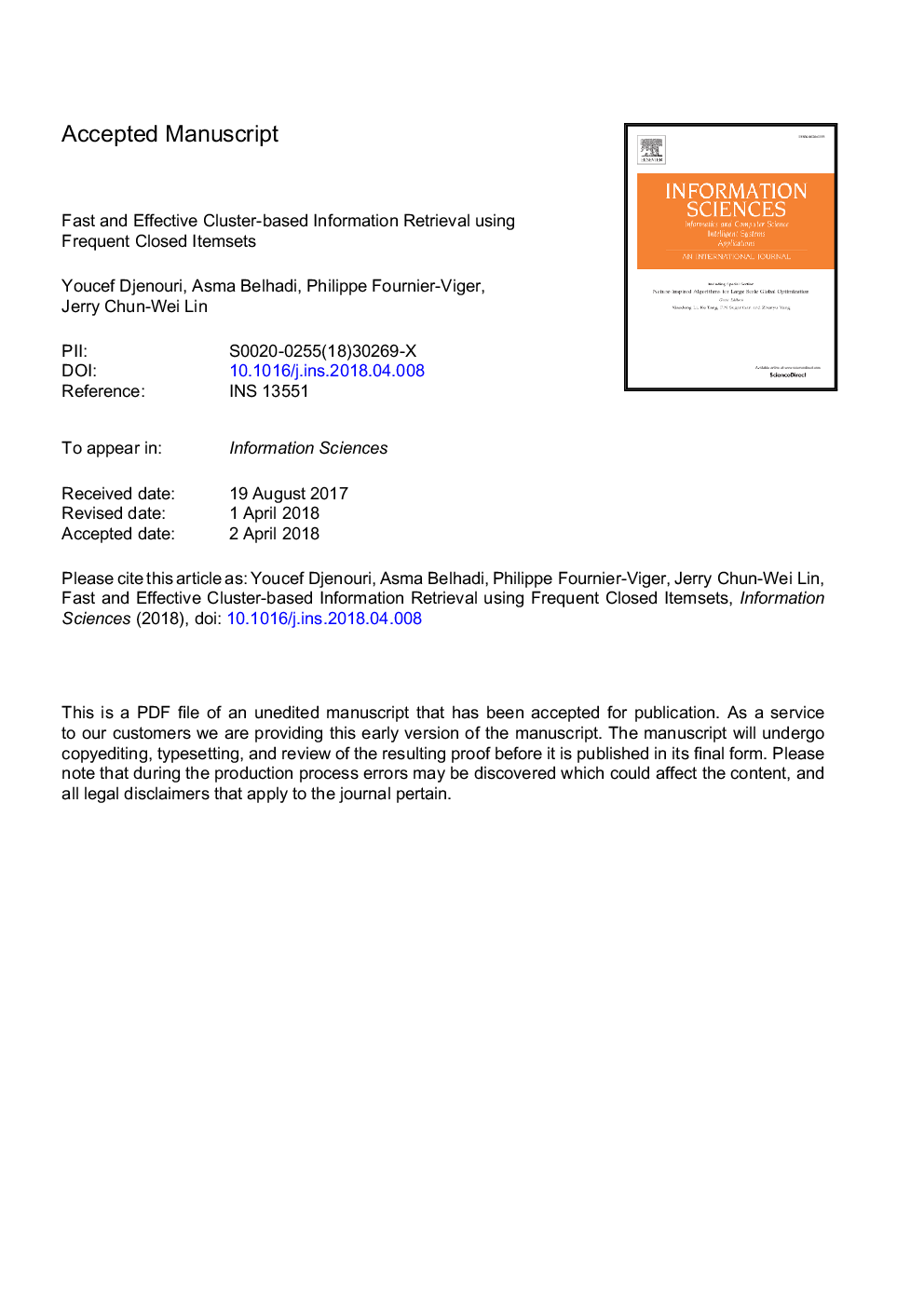ترجمه فارسی عنوان مقاله
سریع و موثر بازیابی اطلاعات مبتنی بر خوشه با استفاده از بسته های مکرر بسته
عنوان انگلیسی
Fast and effective cluster-based information retrieval using frequent closed itemsets
| کد مقاله | سال انتشار | تعداد صفحات مقاله انگلیسی |
|---|---|---|
| 107925 | 2018 | 32 صفحه PDF |
منبع

Publisher : Elsevier - Science Direct (الزویر - ساینس دایرکت)
Journal : Information Sciences, Volume 453, July 2018, Pages 154-167
ترجمه کلمات کلیدی
بازیابی اطلاعات سند، داده کاوی، مجموعه های بزرگ، رویکردهای مبتنی بر خوشه ای، استخراج مزارع مکرر،
کلمات کلیدی انگلیسی
Document information retrieval; Data mining; Big collections; Cluster-based approaches; Frequent itemset mining;

